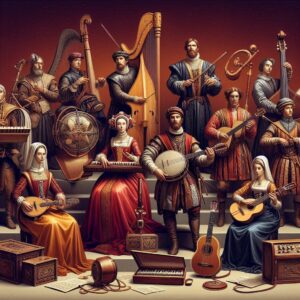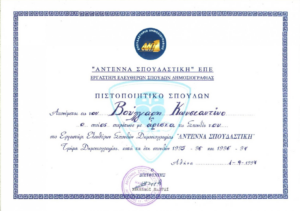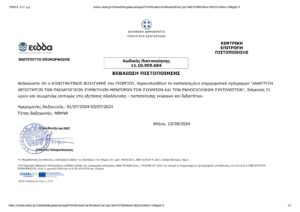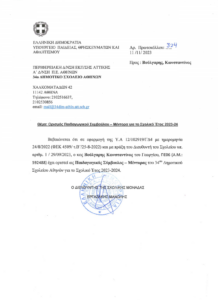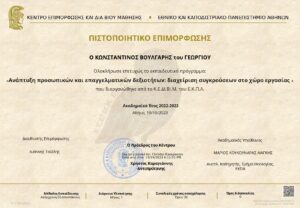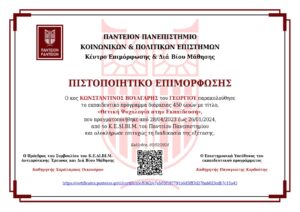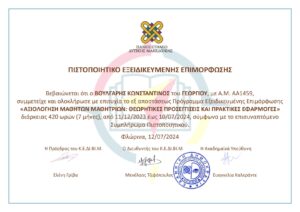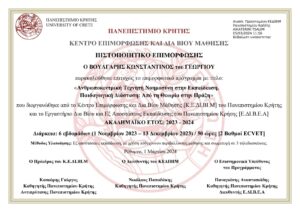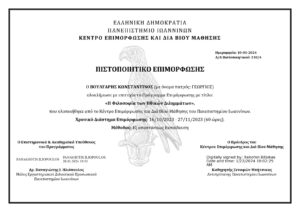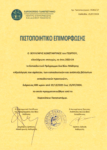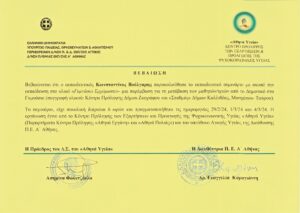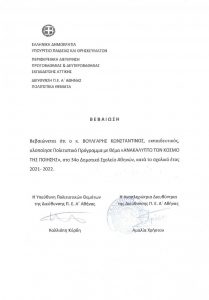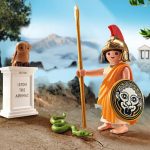Richard III
Βλ. και Pupil’s Book:
Ε′ τάξη, σελ. 86 και 145,
ΣΤ′ τάξη, σελ. 34.
Richard III, the Duke of Gloucester, is the protagonist of the play of the same name, Richard III. He is known for his physical deformities, including a hunched back and a withered arm, and his ambition to seize the throne of England. In the following passage, Richard reflects on his own physical appearance and how it affects his self-esteem and confidence.
Passage from Richard III (adapted for children)
Act 1, Scene 1
I am not like those who are good at playing games,
Or those who love to look at themselves in mirrors.
I feel rough and unattractive, and I don’t have the confidence
To show off in front of someone I admire.
Act 1, Scene 2
In this peaceful time, I find no joy
Except to see my shadow in the sun
And think about my own differences.
Because I cannot be popular,
I will choose to be a villain
And reject the happiness others enjoy.
The Tempest

Caliban is a native inhabitant of the island in Shakespeare’s play The Tempest. Caliban is often portrayed as having physical deformities. Although the exact nature of his appearance is not explicitly described in the text, he is described by other characters as “savage” and “monstrous.”
Passage from The Tempest (adapted for children)
Act 1, Scene 2
You used to take care of me,
You even gave me water with berries in it,
And taught me about the big light in the sky,
And the smaller ones that shine day and night.
I loved you for that and showed you everything
About the island—where to find fresh water,
Salt pans, barren places and fertile.


Caliban is speaking to Prospero, the exiled Duke of Milan, whom Caliban initially viewed as a benevolent figure until Prospero enslaved him and mistreated him.
Act 3, Scene 2
Don’t be afraid; the island is full of sounds,
Beautiful melodies that bring joy and don’t harm.
Sometimes I hear a thousand musical instruments
Playing softly around me; and sometimes voices
That, if I were to wake up from a long sleep,
Would lull me back to sleep again. Τhen, in my dreams,
I imagine the clouds opening up to reveal treasures
Ready to fall upon me.
Caliban is speaking to Stephano and Trinculo, two shipwrecked sailors who have arrived on the island. Caliban is reassuring them and describing the enchanting sounds of the island.
Finding Strength in Our Differences
In Shakespeare’s works, we encounter characters like Richard III and Caliban, who face challenges due to their physical differences. Despite their struggles, they display resilience and inner strength. Richard, with his hunched back and withered arm, reminds us that true worth lies not in outward appearances but in the kindness and courage within. Likewise, Caliban, though often misunderstood because of his deformities, finds beauty and wonder in the world around him, teaching us the importance of seeing beyond superficial judgments.
Their stories inspire us to embrace diversity and celebrate the unique strengths and abilities of every individual, recognizing that disability does not define a person’s worth or potential. Instead, it is their spirit, resilience, and capacity for empathy that truly make them extraordinary.
Quiz
1. Who is Caliban speaking to in The Tempest?
a. King Lear
b. Prospero
c. Romeo
d. Julius Caesar
2. In the passage, what physical deformities is Richard III known for having?
a. A hunched back and a withered arm
b. Long hair and big feet
c. Green eyes and a scar
d. None of the above
3. In the passage from Richard III, what does Richard feel he lacks confidence to do?
a. Play games
b. Look in mirrors
c. Show off in front of someone he admires
d. None of the above
4. In what scene of Richard III does Richard reflect on his physical appearance and self-esteem?
a. Act 1, Scene 1
b. Act 1, Scene 2
c. Act 2, Scene 1
d. Act 3, Scene 3
5. Who is the protagonist of the play Richard III?
a. King Henry
b. Richard III
c. Macbeth
d. Hamlet
6. How is Caliban described by other characters in The Tempest?
a. Savage and monstrous
b. Kind and gentle
c. Brave and heroic
d. None of the above
7. In Act 1, Scene 2 of The Tempest, what did Prospero teach Caliban about?
a. Trees
b. The stars
c. The ocean
d. Numbers
8. What island is Caliban a native of?
a. Hawaii
b. Jamaica
c. Cuba
d. The island in The Tempest
9. Who mistreated Caliban in The Tempest?
a. Ariel
b. Ferdinand
c. Prospero
d. Ophelia
10. In Act 3, Scene 2 of The Tempest, Caliban describes the island as full of what?
a. Silence
b. Sounds
c. Animals
d. Lights
11. How does Caliban describe the voices he hears in Act 3, Scene 2?
a. Harsh and loud
b. Soft and enchanting
c. Mysterious and haunting
d. None of the above
12. What does Caliban imagine in his dreams in Act 3, Scene 2 of The Tempest?
a. Dancing monkeys
b. Falling treasures
c. Rainbows
d. Fireworks
13. What does Caliban show Prospero in The Tempest?
a. How to fish
b. The island
c. A secret cave
d. A magical spell
14. In The Tempest, who arrives on the island and encounters Caliban?
a. Two shipwrecked sailors
b. A group of fairies
c. A band of pirates
d. A lost prince
15. What musical instruments does Caliban hear in Act 3, Scene 2 of The Tempest?
a. Guitars and drums
b. Cellos and flutes
c. A thousand musical instruments
d. None of the above
16. What does Caliban say the island’s melodies bring in The Tempest?
a. Fear and harm
b. Joy and no harm
c. Sadness and loss
d. Excitement and adventure
17. Who is Richard speaking to in Act 1, Scene 1 of Richard III?
a. Queen Elizabeth
b. Lady Anne
c. His brother Clarence
d. Himself
18. What does Caliban think about the clouds in The Tempest?
a. They bring storms
b. They reveal treasures
c. They hide the sun
d. They are boring
19. In the passage from The Tempest, what does Caliban love about Prospero initially?
a. Teaching him about the island
b. Enslaving him
c. Mistreating him
d. Giving him water and care
20. Why does Richard choose to be a villain in Richard III?
a. Because he wants to be popular
b. Because he is happy
c. Because he cannot be popular
d. None of the above
Ετικέτες: William Shakespeare, Αγγλία, ανθρώπινα δικαιώματα, Ειδική Αγωγή, Ε’ τάξη, λεξιλόγιο, ΣΤ’ τάξη, Τεχνητή Νοημοσύνη, Ψυχική Υγεία









